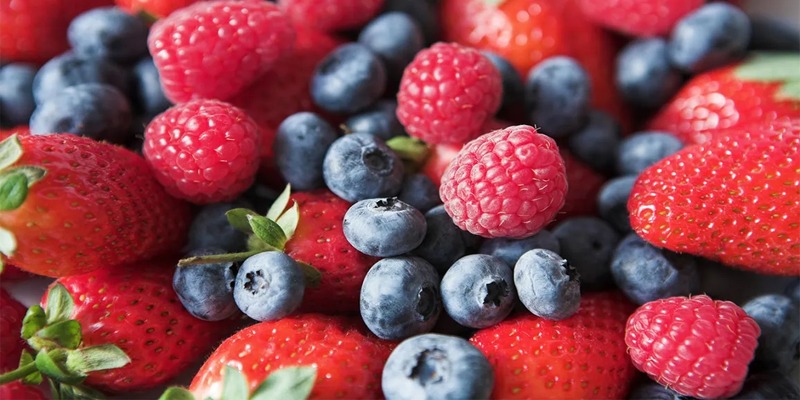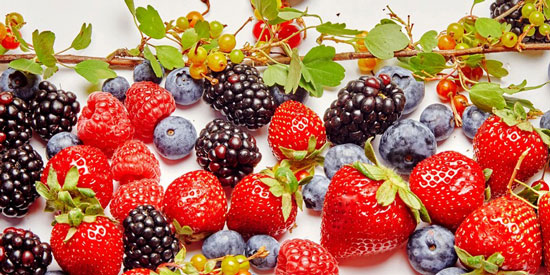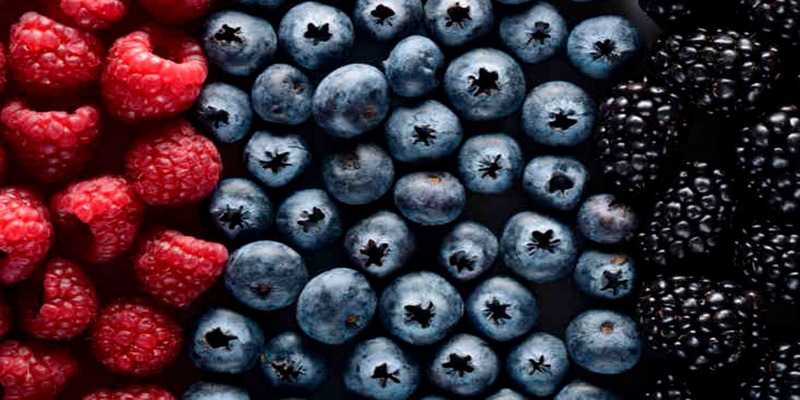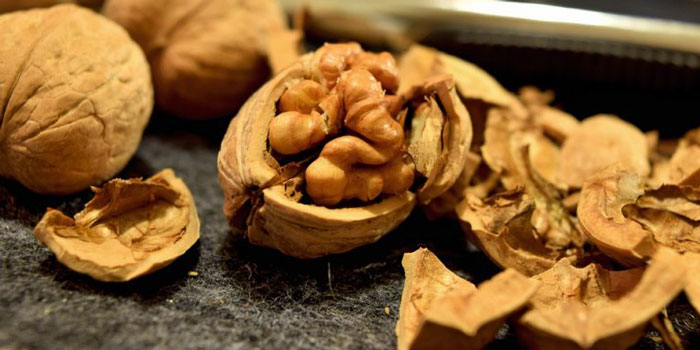Fresh or frozen, raspberries are a treat any time of year. Beautiful on the outside and nutritious on the inside, these jewels are one of the healthiest options in the fruit section. Here are seven ways raspberries may improve your health and several easy methods to incorporate fresh and frozen berries into your diet.
Raspberries Are Extremely Nutritious
U.S. Department of Agriculture data shows that a 100-gram serving of raspberries contains 23 milligrams of vitamin C. (USDA). According to the National Institutes of Health, this is around 30% of women's recommended daily vitamin C requirement. It aids in immune system function, skin health, and collagen production, among other benefits.
As a bonus, raspberries support bone health because of their vitamin K content. They include some vitamin E, and potassium, but in lower concentrations than other foods.
Having Few Sugars
According to the USDA, raspberries have only 2.7 grams of sugar per 100 grams, making them one of the lowest-sugar fruits. By comparison, a small apple has roughly 13 grams of sugar. These are a terrific alternative if you have a sweet craving but are trying to cut back on your sugar intake.
Full Of Anti-Ageing Antioxidants

Raspberry's high vitamin C concentration makes them a potent antioxidant. The Harvard School of Public Health (HSPH) reports that eating more antioxidant-rich fruits like raspberries reduces the risk of chronic stress-related disorders, including cardiovascular disease, cancer, and mortality.
According to the National Institutes of Health, antioxidants can either stop or slow down some forms of cell damage. Your body generates free radicals whenever you work out, transform food into energy, and is exposed to harmful environmental factors like cigarette smoke, air pollution, or sunshine. These compounds are highly labile.
They Offer Cancer Protection
Antioxidants and anti-inflammatory chemicals found in raspberries have been linked to preventing cancer by slowing the growth of the disease's cells. According to research published in 2016 in the journal Advanced Nutrition, raspberries are one of the few plant meals that provide a source of both ellagitannins and anthocyanins.
Raspberry Has a Lot of Fiber.
According to Advanced Nutrition Research, 100 grams of raspberries provides 3.5 grams of dietary fibre, making them one of the most excellent whole food sources of this nutrient. Fibre aids in satiety lowers blood sugar because it slows digestion, and promotes healthy bowel movements, as shown by the National Library of Medicine's Medline Plus database.
The fibre in raspberries also encourages the growth of beneficial microorganisms in the digestive tract. A 2021 article published in Nutrients addressed the scientific data suggesting that increasing dietary fibre consumption might modify gut flora, which can benefit people with Obesity, metabolic syndrome, and other chronic gut disorders.
Potentially Useful in Diabetes Prevention
In a 2019 study published in Obesity, the researchers split 32 individuals between the ages of 20 and 60 into three groups, each of whom received one of three different breakfasts. Calories and macros were identical across the board.
However, one meal had no raspberries, another had a cup, and the third had two cups of frozen red raspberries. Eating more raspberries lowered insulin requirements for controlling blood sugar in people at high risk of developing diabetes. Those who had two cups of red raspberries had much lower blood sugar levels than those who consumed none.
Raspberries Improve Brain and Memory
Raspberries are an excellent diet for the brain because they help reduce oxidative stress, a known contributor to neurodegenerative illnesses like Alzheimer's and Parkinson's. Harvard Medical School found that the flavonoids included in berries helped patients with their coordination, memory, and mood. Further, berry consumption aids brain "housekeeping" by removing harmful proteins associated with brain dysfunction.
Strategies for Including More Raspberries in Your Diet
Raspberries may be a decorative and delicious garnish for sweet and savoury foods. Include them in your morning or overnight cereals, salads, whole grain sides, and sweets.
Lightly mash them to make a sauce that can be used on a wide variety of foods, from two-ingredient banana egg pancakes to broiled fish and oven-roasted veggies. You may throw them in the blender to make a smoothie, or you can thaw them and use them in lieu of fresh ones.
Raspberry "cobbler" may be made by warming frozen raspberries with fresh grated ginger root and cinnamon over low heat in a saucepan. Then, a crumble of almond butter, rolled oats, chopped almonds, shredded coconut, or shaved dark chocolate can be sprinkled on top.





